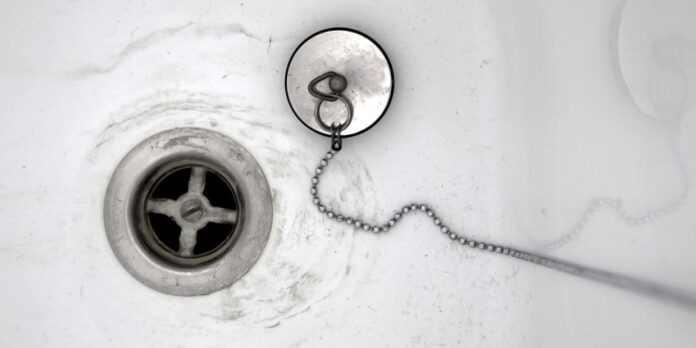Clogged drains can be a real nuisance to deal with, especially if you were not taking preventive measures from the beginning. Once a long-neglected drain clogs up for good, it will need to be cleared by professionals, and that’s never cheap. To help our readers avoid expensive plumbing bills, we have compiled a comprehensive list of tips and tricks today. You will find that each of the following drain management and cleaning tactics are as practical as they are effective.
Explore London’s hidden depths with our CCTV drain surveys London. Uncover potential issues, ensure optimal drainage performance, and prevent future problems. Trust our experts for thorough inspections and reliable solutions.
What are the Warning Signs of an Impending Drain Clog?
There are several signs of an impending clog, making it possible for us to act on them before the problem becomes too big for us to handle. We have a list of the usual signs and symptoms listed below:
Slower Draining – Slower than usual draining is the most obvious sign that a clog is developing somewhere inside the drainage system.
Gurgling Sink – Sinks do make a gurgling noise just before the last drops of water go down. It becomes a warning sign when:
- the gurgling sound is heard several times after you pour in a substantial amount of water.
- the sound is accompanied by frequent air bubbles shooting up from the drain.
- water has started to drain from the sink at a much slower pace than usual.
Ineffective Garbage Disposal System – If you find your garbage disposal system to be less effective and food particles come back up on the sink, it is a bad sign. Something is preventing the machine from shredding waste and getting rid of it. These clogs are usually a result of something being in the sink that had no business being in there.
Bad Smell – A lingering bad smell near the sink indicates that something is rotting inside the drainpipe. Unless addressed, it will soon make its presence more obvious by clogging up the drain.
Water Speed and Garbage Disposals
If you have a garbage disposal system under the kitchen sink, keep the faucet water running at a steady speed, every time you turn the shredder on. Running water will keep washing away shredded waste constantly, thus preventing accumulations that lead to blocked drains.
Know the Limits of Your Garbage Disposal System
Never throw clumpy, stringy, thick, and/or sticky waste into the garbage disposal system because there is a limit to how much and what the machine can handle. The following examples should provide a good idea regarding things that should not be thrown into the garbage disposal.
- Banana peels, potato peels, and other thick fruit/vegetable peels
- Celery, corn husk, lettuce
- Coffee beans and grounds
- Eggshells
- Grains and grain-derived food like noodles, pasta, rice, bird seeds, etc.
- Oils, fats, and greasy food
Throwing in the wrong type of waste will not only clog up your drain immediately/gradually, but it may also damage the disposal system. While it is true that a garbage disposal system can certainly help in managing kitchen waste better, you do not essentially need one to keep the sink and drainage system clear though.
Use Drain Catchers to Protect the Kitchen Sink and Your Garbage Disposal
Strainers come in variable designs, but you will specifically need kitchen sink drain catchers to prevent clogs in the kitchen. Check out these drain catchers called Kitchen SinkShrooms, similar to strainers for catching hair and fur with incredible accuracy. These new stainless-steel drain catchers can gather all types of solid food particles, while simultaneously allowing the water to pass unhindered. The TubShroom drain catchers have a lifted design in the middle to keep the sink open, even when there are tons of dirty dishes in the sink.
Follow the No Grease Rule
Do not pour oil, fat, or grease of any kind down the kitchen sink. Cold, detergent water cannot wash away grease from inside the sink and the connecting drainpipe. As a result, some of it will always stick to the pipe’s inner surface, getting bigger every time you pour oil or oily residues down the sink.
Over time, this amalgamation will turn into a sticky, gluey mess, catching tiny waste particles and growing larger. Gradually, the gunk will gain enough mass to block the drainage system partially or completely.
Melt Away the Grease with Hot Salt Water
Unless you are dealing with an exceptionally large block that has been neglected for far too long, hot saltwater is the only solution you will need to melt grease blocks. Boil a pot of water with salt and then wait for 30-seconds, allowing the bubbles to settle down.
Pour it all down into your sink slowly to unclog the drain. In case the boiling water starts pooling into the sink, be extra careful and make sure none of it splashes onto you. Pour as much of it as you can into the pool and the water should begin to move within a minute or two. Do this once every week to prevent greasy clogs from forming altogether.
Unclog the Drain with Baking Soda & Vinegar
Even if our hot salt water alone is not enough to get the job done, you may still be able to clear the block on your own. Just follow the steps as stated next to clear most drain clogs in less than 30-minutes.
- Boil two pots of water with salt.
- Prepare a separate cleaning solution by mixing a cup of baking soda in one cup of vinegar.
- Pour a pot of hot salt water down the drain.
- If water starts pooling, pour only some of it and then let that standing water go down first, before pouring in the rest.
- Now, pour in the baking soda and vinegar solution.
- Cover the opening with a drain plug and give it 10 – 15 minutes.
- After the break, pour in your second pot of boiling salt water slowly.
- Repeat the process once more if required.
When Is It Time to Call the Plumber?
You may have to consider professional-grade, industrial cleaning agents if all these steps fail. Those are dangerous chemicals, which emit toxic fumes, so you call in a plumber to get the job done. They too may decide on a similar course of action, but plumbers have the necessary PPE and experience to keep themselves and your kitchen safe while using chemicals. Professionals also know when to use what, while the average homeowner does not.
It is not uncommon for people to unwittingly end up melting the blockage, along with their drainpipe! This may happen due to the overuse of unsuitably strong chemical drain cleaners for cleaning out a residential drainage system. Also, do not attempt to use heavy-duty jetters on your own. Those may seem like simple machines, but untrained use of immense water pressure can lead to devastating accidents inside homes. Drainage pipes inside residential buildings are not built to withstand industrial drain cleaning equipment or chemicals.
During emergencies, calling in a plumbing professional is the only viable option. Barring extreme situations though, regular clogging problems can be avoided, minimized, and cleaned out with the steps we discussed here. Understand that the more steps you take towards preventing clogs, the easier it will be to clean out blockages if any are observed at all. Regular maintenance can eliminate any chances of a badly clogged drain in the future as well.





















